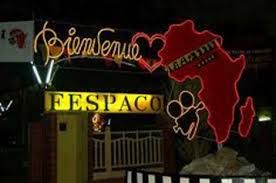
With the upcoming closing ceremony of the FESPACO this Saturday, I thought it important to talk about Africa’s film tradition. For starters, the FESPACO (Festival Panafricain du cinema et de la television de Ouagadougou) is the Panafrican Film and Television Festival of Ouagadougou, the largest African film festival, held biennally in Ouagadougou, the capital of Burkina Faso. First established in 1969, and boasting some of the Africa’s greatest writers and filmmakers (like Ousmane Sembene), the FESPACO offers a chance to African filmmakers and professional to showcase their work, exchange ideas, and meet other filmmakers, and sponsors. Filmmakers from around the continent all come together in Ouagadougou which is transformed into the Hollywood or the Cannes of the continent for this special occasion. This year’s FESPACO is presided by legendary director Euzhan Palcy (who made: Rue Cases Negres, A Dry White Season, Ruby Bridges).

This year, 755 movies are competing in different categories. 20 feature films will be competing for the Golden Stallion of Yennenga (Etalon d’Or de Yennenga) which will be awarded Saturday March 2nd. The select 20 features in the ‘long metrage’ section address various subjects such as clandestine immigration (‘La Pirogue’ from Senegalese Moussa Traore, which was a big hit at last year’s Cannes festival), journalism and censorship (‘Les Chevaux de Dieu’ by Moroccan Nabil Ayouch, also featured at Cannes 2012), love (‘Love in the Medina’, by Moroccan filmmaker Abdelhai Laraki), war (‘La genese de la bataille d’Alger’, by Algerian filmmaker Said Ould Khelifa), theft in society (How to steal 2 million, from South African Charlie Vundla), ‘La republique des Enfants’ (Children’s republic) by Bissau-Guinean filmmaker Flora Gomes– a country abandoned by adults where children organize themselves into a prosperous country, or revolution and prostitutes in a war camp (‘Virgem Margarida’ directed by Mozambican Licinio Azevedo – which premiered at the Toronto International Film Festival last year).
Enjoy this photojournal by Nic Bothma on the the Guardian’s website. You can read some movies’ sypnosis on Gabonews. Enjoy the generic of this year’s festival, which tells the story of the famous princess Yennenga, and the festival.


You really make it seem so easy with your presentation but I find
this topic to be really something which I think I would never understand.
It seems too complex and very broad for me.
I am looking forward for your next post, I will
try to get the hang of it!
LikeLike
Pingback: What did we celebrate in 2013 in Africa? | African Heritage
Hi there, its nice piece of writing.
LikeLike
Excellent blog post. I definitely love this site. Keep it up!
LikeLike
Pingback: FESPACO 2015: Celebrating African Films | African Heritage
I will definitely see if I can find some of the movies that have been featured in that festival. Speaking of Ousmane Sebene, I just saw Black Girl for the first time yesterday. How was I not taught about this director when I had multiple film classes? Expect a review of that movie soon.
LikeLike
Yes,.. I cannot wait to read your review. Thanks for sharing.
LikeLiked by 1 person
Thank you. You’ll definitely know once that review pops up online. I know you will appreciate my thoughts. I really wish my media and film teachers told me about Ousmane Sebene. Maybe they knew him or maybe they didn’t, but he should be taught alongside other innovators such as Akira Kurosawa or Francois Truffaut.
LikeLike
Yes… I agree!
LikeLiked by 1 person
Sure thing. Africa was sorely missing when I took that world cinema course during my time at university. I liked the class and we saw cool movies, but it would’ve been better if African filmmakers were covered.
LikeLike
Yes… Africa may still be missing on the curriculum even today.
LikeLiked by 1 person
I wouldn’t be surprised. The closest thing to an African movie we saw in school when I was in American Cinema (a different, yet related course) was Casablanca. Sure, the story takes place in the same city in Morocco, but it’s just as African of a movie as Taco Bell is to Mexican food.
LikeLike
Yes oooo
LikeLiked by 1 person
Hahaha! Thanks for appreciating my analogy. Watch as the film snobs bash me for this…I didn’t think Casablanca was as good of a movie as the critics hailed it to be. 😛
LikeLike